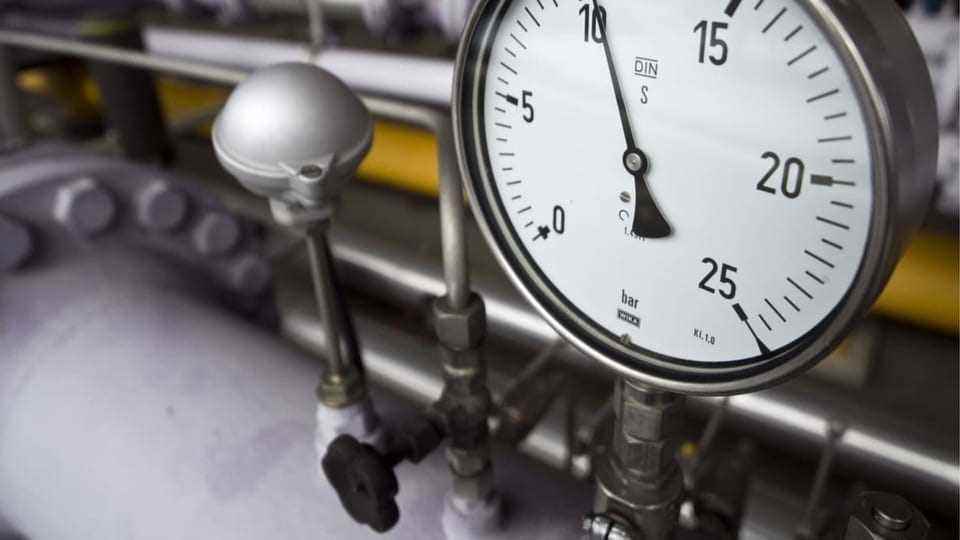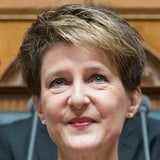The EU recently decided that every member would voluntarily reduce its gas consumption by 15 percent from August 1, 2022 to March 31, 2023. Is Switzerland following suit? Environment Minister Simonetta Sommaruga takes a position and says how companies and private individuals can help to combat any energy crisis.
SRF News: Because of the energy situation continue to produce at the Beznau power plant, endangered fish or not. How bad is our energy situation?
Simonetta Sommaruga: The situation is tense. We have a global energy crisis with an epicenter in Europe. With the Beznau nuclear power plant, we are currently exporting electricity – as always in summer – but are then dependent on imports in winter. This means that we must also work with our European neighbors to ensure that we are well coordinated.

Legend:
A dial gauge of the natural gas distribution system in Schlieren.
Keystone/Urs Jaudas
Wasn’t Beznau more about not emptying our own reservoirs because we still need them in winter?
At the moment, no country can only look out for itself. When it comes to gas and oil, we are 100 percent dependent on foreign countries. Therefore, there is a great interest in communicating well. And at the same time, every country must do what is possible to be prepared for a possible crisis.
What specifically will change after the exchange with European countries?
The EU demands emergency plans from its member states, and Switzerland is now doing the same and is making sure that these are coordinated as well as possible.
The EU also has plans to save gas. And here, too, I think Switzerland should align itself with the EU.
Does that mean that Switzerland should also save 15 percent on gas from August to March?
The Federal Council will decide that. We are examining this because it is important to show the EU that we are also making a contribution. By the way, the industry is already doing it. With the high prices, everyone is looking at how they can become more efficient.
How could one save the 15 percent gas?
There are various options for this, two-material systems, for example – that is, that a process is carried out with oil instead of gas.
If companies switch from gas to oil but emit more CO₂ – then they can no longer achieve their CO₂ targets. Then what do you say?
The Federal Council must now look at such questions. We asked the gas industry to buy and store more gas. For the first time next winter we will also have reserves in the reservoirs and we have a bailout for big power companies. We’ve made a lot of decisions in the last few months.
Does that mean that the Federal Council will at best accommodate companies that may now be getting “dirtier”?
We’ll look at that. To ensure security of energy supply for the winter, many countries have to do things that they would actually rather not do. The green energy minister in Germany, for example, has to go back to coal.
To ensure security of energy supply, many countries have to do things that they would actually rather not do.
But we also have to be aware that the crisis will not be over by the end of winter. That is why one of the most important things is to expand the production of renewable energies.
Should we all be saving electricity now?
We are working – together with business and industry – on a campaign to show what each of us can contribute.
What do you do personally?
At the moment it’s a matter of asking yourself whether air conditioning has to be running or whether you can do without it. For example, you can take a shorter shower. There are things anyone can do.
Nathalie Christen conducted the interview.
